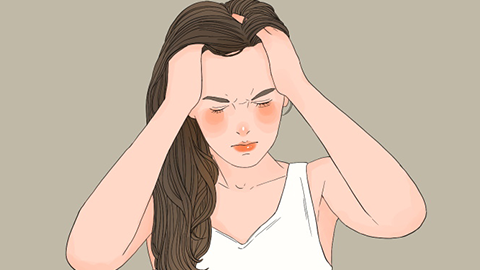How is bipolar disorder treated?
Under normal circumstances, bipolar disorder may be caused by factors such as genetic predisposition, neurotransmitter imbalances, disrupted sleep rhythms, abnormal thyroid function, or medication-induced triggers. It is recommended to seek medical attention promptly, identify the underlying cause, and then improve symptoms under a doctor's guidance through medications, lifestyle adjustments, and other approaches. Specific analysis is as follows:

1. Genetic factors: A family history of the condition increases the risk of developing bipolar disorder. Genetic susceptibility interacts with environmental factors to trigger the illness. Establishing a regular daily routine, avoiding triggers such as staying up late or excessive alcohol consumption, and undergoing regular psychological counseling can help strengthen emotional resilience.
2. Neurotransmitter imbalances: Imbalanced dopamine and serotonin levels can lead to extreme mood swings. Engaging in 30 minutes of aerobic exercise daily helps promote neurotransmitter balance. Reducing intake of caffeine and sugary foods is also recommended to avoid overstimulating the nervous system.
3. Disrupted sleep rhythms: Chronic insomnia or irregular sleep patterns may trigger mood episodes. Maintain a consistent sleep schedule, ideally from 10 PM to 6 AM each night. Avoid using electronic devices before bedtime. Soaking feet in warm water or listening to white noise may assist in improving sleep quality.
4. Abnormal thyroid function: Thyroid hormone imbalances can affect mood regulation and worsen symptom fluctuations. Follow your doctor’s instructions when taking medications such as levothyroxine sodium tablets, methimazole tablets, or propylthiouracil tablets, and regularly monitor thyroid function indicators.
5. Medication-induced: Long-term use of certain antidepressants or hormonal drugs may trigger bipolar disorder. If suspected, discontinue the relevant medication immediately and follow medical advice for alternative treatments such as lithium carbonate sustained-release tablets, lamotrigine tablets, or quetiapine fumarate tablets. In severe cases, electroconvulsive therapy (ECT) may be used to rapidly stabilize mood.
In daily life, maintain a light and balanced diet, with increased intake of foods rich in Omega-3 fatty acids. Proactively communicate with family and friends, join patient support groups to gain emotional support, avoid prolonged isolation, and manage the condition comprehensively to achieve better control of symptoms.





